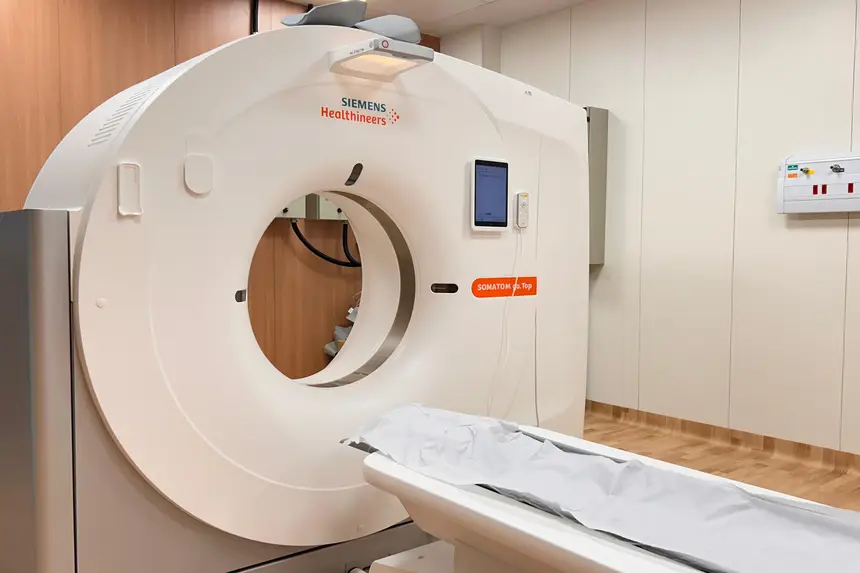Hospital da Mulher do Pará invests in technology focused on sustainability
New tomography machine reduces energy consumption, uses recyclable materials, and strengthens commitment to the Sustainable Development Goals and COP 30
The Hospital da Mulher do Pará (HMPA), a unit of the State Government, reinforces its commitment to sustainability by incorporating technologies that reduce energy consumption and increase the use of recyclable materials. The initiative aligns the unit with the goals of the Sustainable Development Goals (SDGs) and the 30th United Nations Conference on Climate Change (COP 30), which will be held in Belém in November 2025.

One of the highlights is the new tomography machine installed in the hospital, which combines high technology with energy efficiency. According to technical specifications, the equipment provides an average energy savings of 58% during routine exams, without compromising image quality.
Technology and sustainability allied in health
"This tomography machine stands out for being a sustainable and efficient solution, designed to consume less energy, use less lead, and employ easily recyclable materials, which helps reduce its environmental impact," explained HMPA's environmental engineer, Rayane Pereira. According to her, the equipment directly contributes to SDG 7 (Affordable and Clean Energy), SDG 12 (Responsible Consumption and Production), and SDG 13 (Climate Action).
The engineer also highlighted that the tomography machine has a reverse logistics system, allowing for the reuse of components at the end of the device's life. "In addition, the technology reduces radiation exposure, ensuring greater safety for patients and the environment, also contributing to SDG 3 (Good Health and Well-Being)," she added.
Environmental management and technological innovation
The administrative and financial director of HMPA, Rayssa Werneck, emphasized that the project represents another leap in sustainable management in health. "The Hospital da Mulher was structured to adopt good environmental practices, aligned with global goals and state sustainability policies. We have adopted technologies that favor the reduction of environmental impacts," she stated.
Another differentiator is the use of artificial intelligence (AI), which optimizes the use of chemical substances such as contrast agents, with stricter control over disposal and greater safety in the imaging process.
"AI allows for reducing the dosage of substances in patients and speeds up the reconstruction of images, decreasing the time spent in the examination room. Furthermore, the equipment has a lower amount of lead, which is highly toxic," explained the hospital's Clinical Engineering supervisor, Wladimir de Vasconcelos.
With this investment, HMPA positions itself as a reference in technological sustainability in public health, showing that it is possible to combine innovation, care for people, and environmental responsibility.









